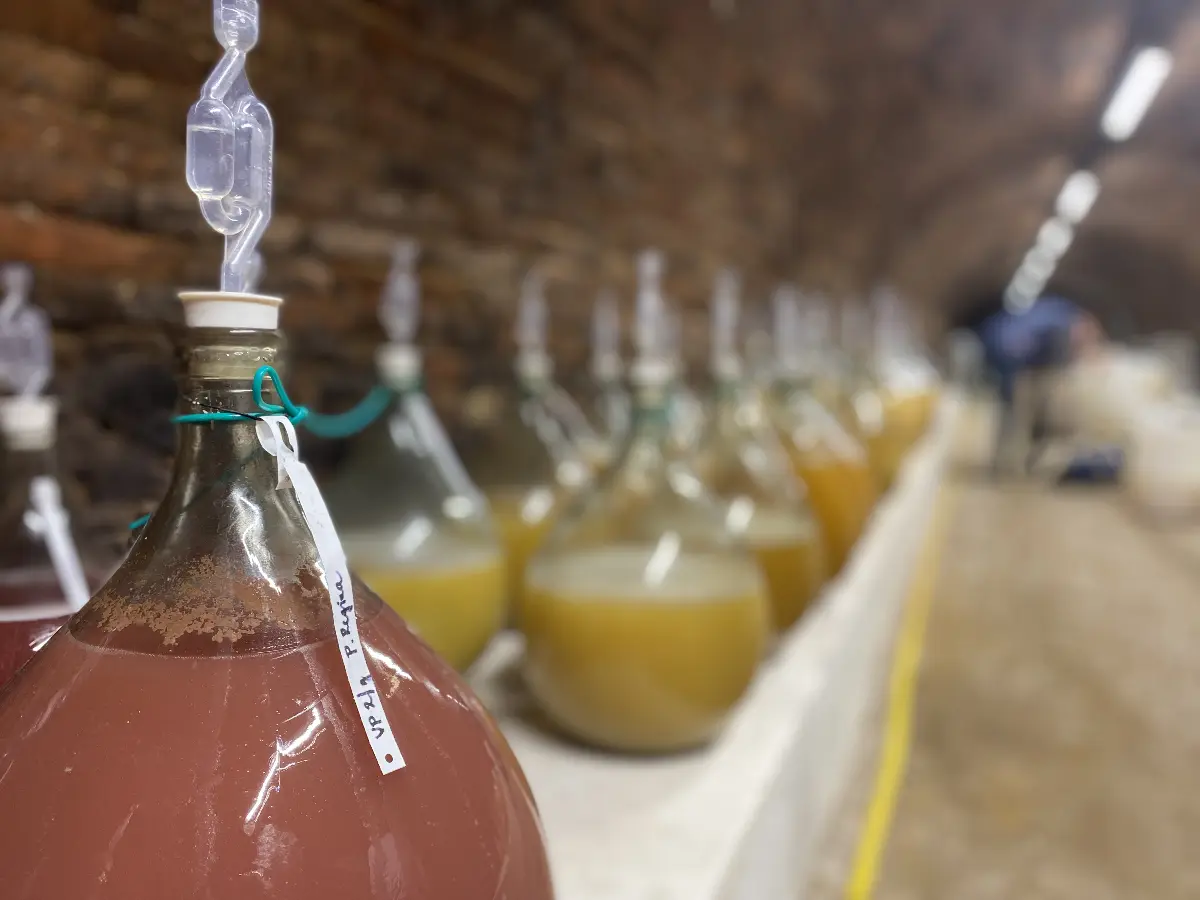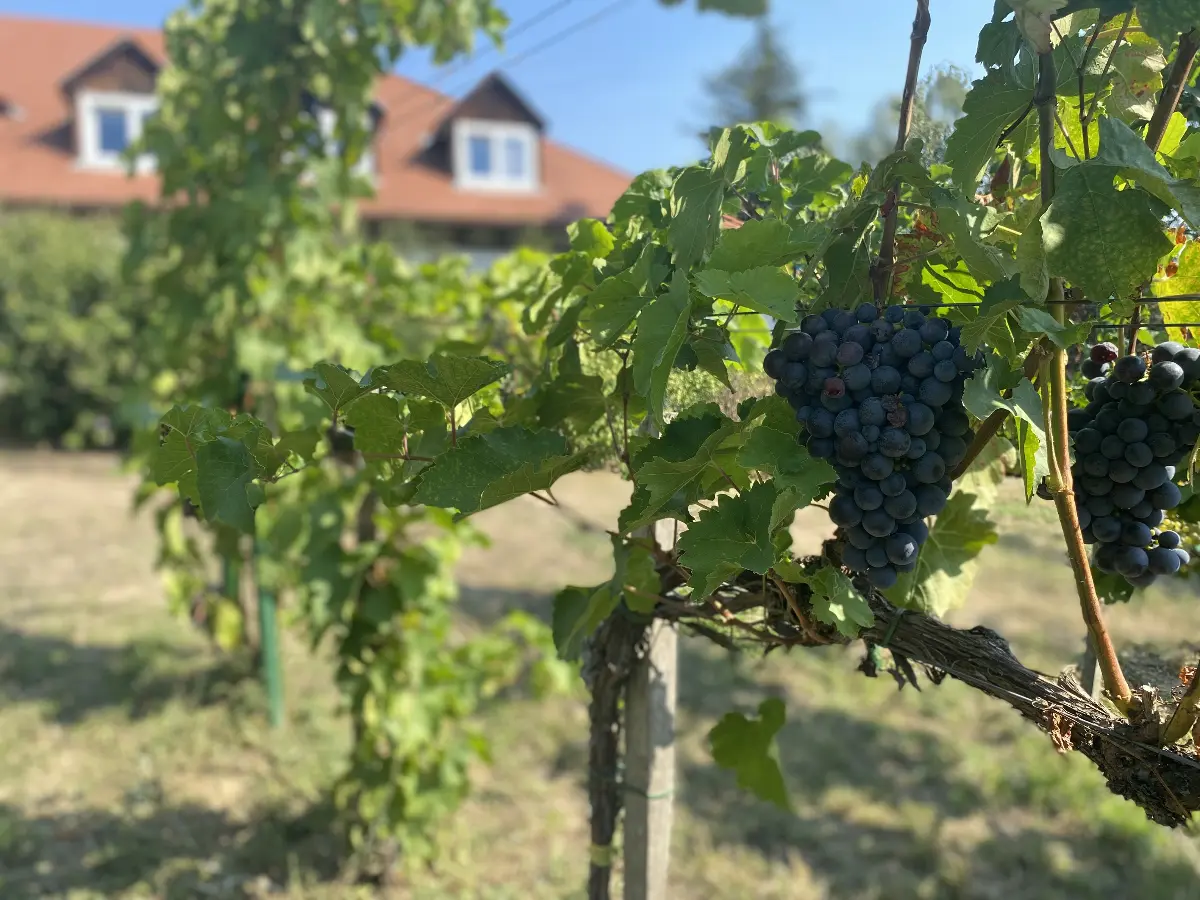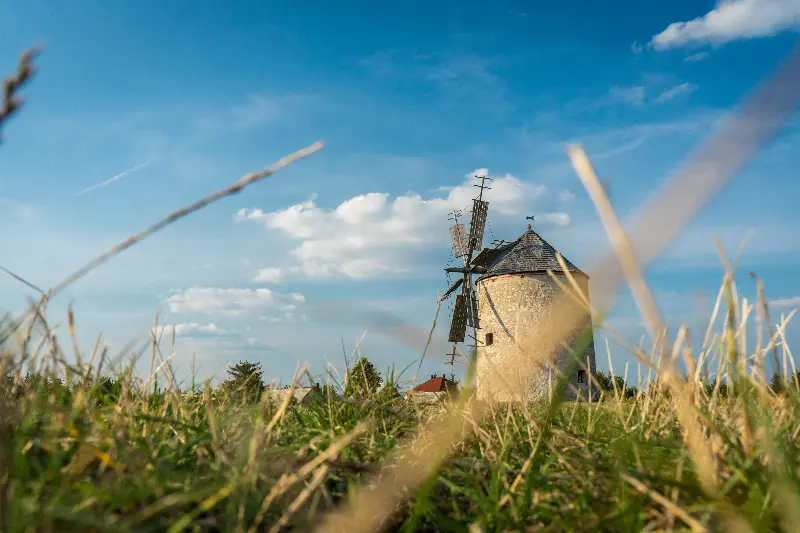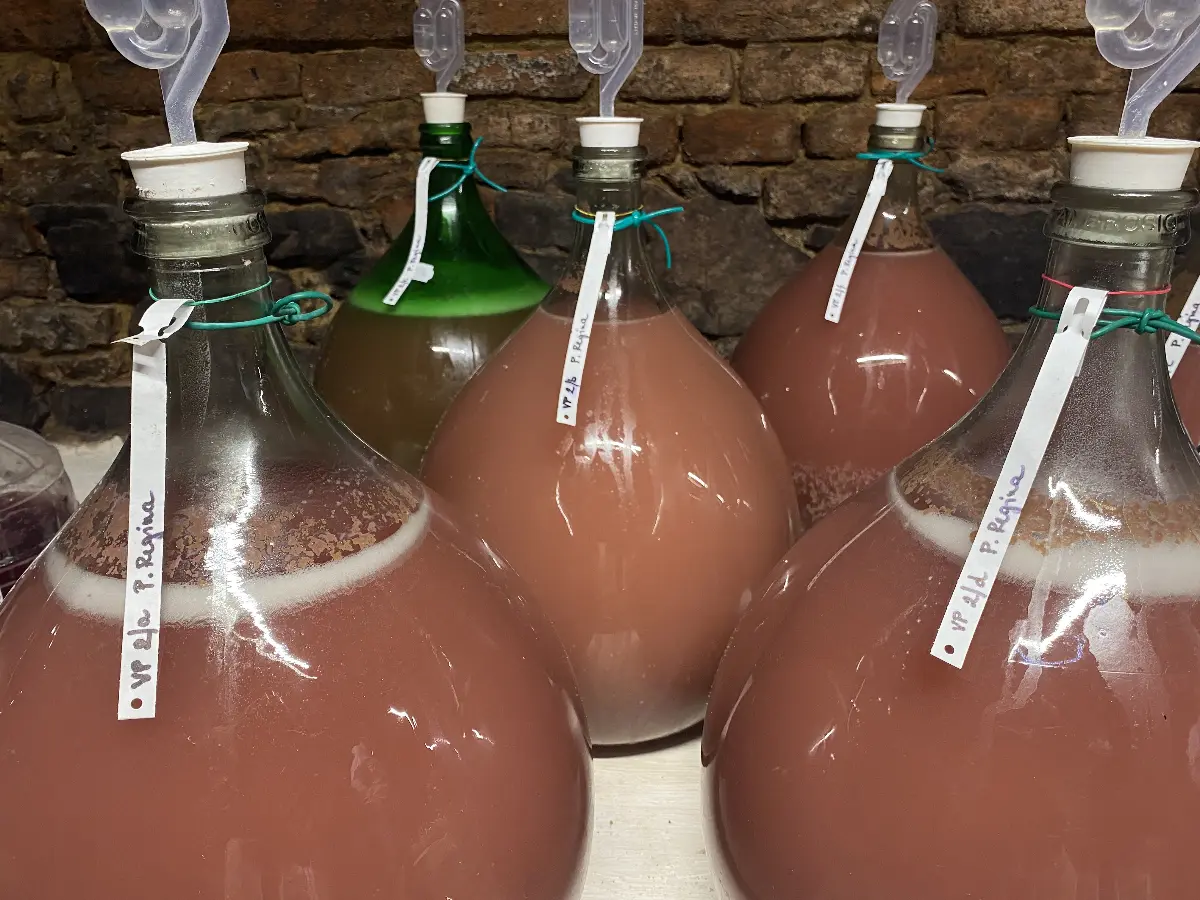
Helyszín címkék:
Where the wine of the future is made: we visited the gene bank in Pécs
Szabó Sára
"Research is good, but it is only useful if we respond to the market needs"
The Research Institute of Viticulture and Oenology at the University of Pécs (which translates to Pécsi Tudományegyetem) owns no less than 1,570 different grape variants in its gene bank which is ranked 2nd biggest in Europe. The collection includes table grapes and wine grapes as well as old Hungarian types from the Carpathian Basin, in addition to nearly 100 sorts of grape varieties that can be found nowhere else in the world. About the practical benefits of such an institute – apart from a post-apocalyptic scenario of grape and wine shortages – we asked its president, Zoltán Madaras.

"The gene bank is to maintain the protection of these grapes, and it also allows us to reach back to certain grape varieties when the market requires. For example, Irsai Olivér has been a neglected type for years, but with the change in public taste, it has become the flagship of fragrant light wines," says Madaras. In addition to the "conservation" of the collection, the Institute has another important task: to monitor the market directly and to do experimentations. "While winemakers often lack the right equipment, infrastructure and time, or simply cannot afford to test new technologies and varieties in their own winery, our institute is able to accomplish these tasks and so it does. We regularly present our results to the winemakers," explains the president of the Institute.
As an example, he cites the need for wines with a lower alcohol content to appear on the shelves of shops, thanks to the rise of flavoured drinks. He says they are trying to help Hungarian wineries in this process, by selecting varieties and through technological experiments. They plan to be able to introduce a selection of wines to Hungarian vintners in spring 2023 with 9-10% alcohol.
Education for better informed wine consumers and a skilled future generation
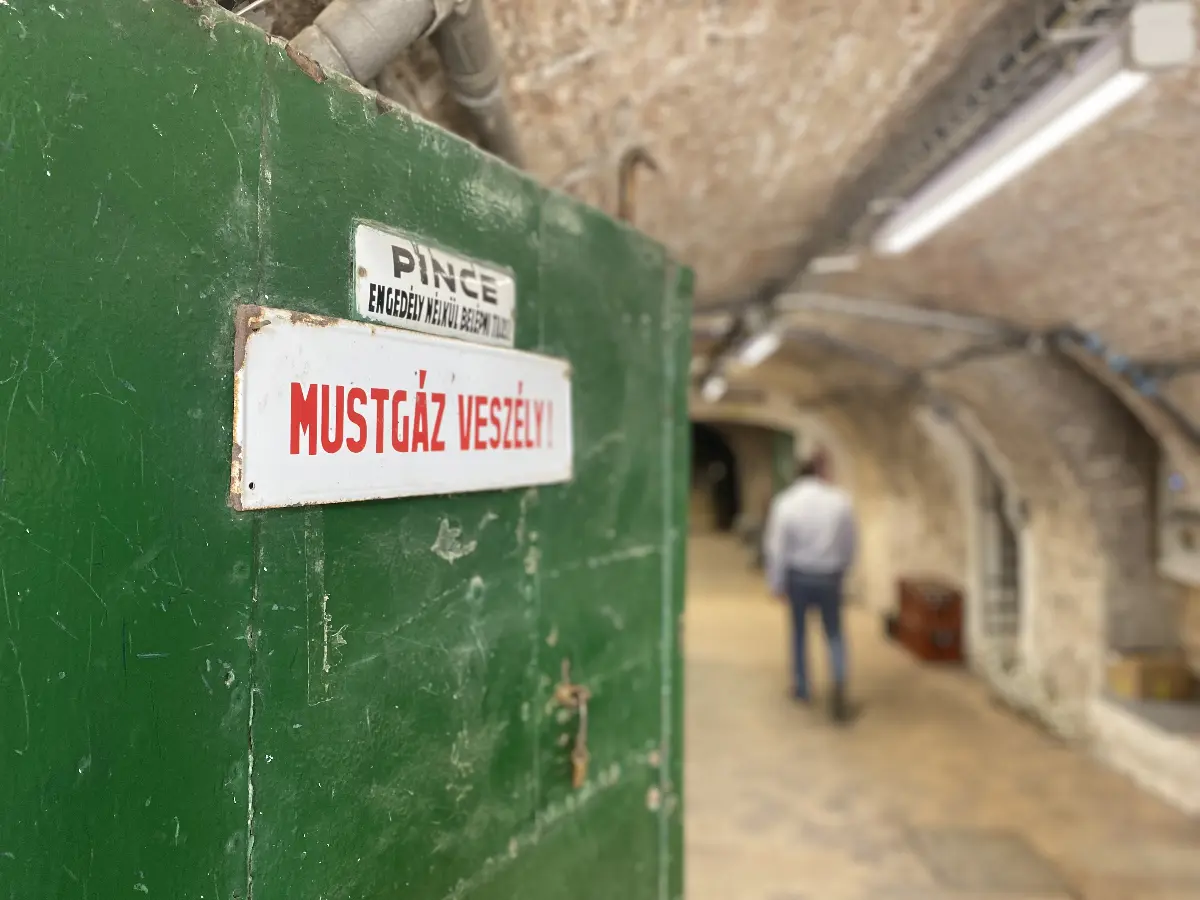
The Pécs institute is not only outstanding in terms of innovation. They are committed to train confident wine consumers who are well educated in wine culture and can navigate through the information overload. Therefore, they have launched the Wine Culture course in 2022, for the second time already, which will be open to all faculties. This course is to provide knowledge about different types of wine, the basics of tasting, and even wine faults. Each occasion, a guest winemaker will come to give the students a tasting of his/her selection.
"During last semester, our guest was the head of the Gizella Winery in Tokaj, who brought his winning Szamorodni that had won the Decanter World Wine Awards in London, and another one, too, already nominated for the next competition."
Resistant grape varieties are the next big novelties
In addition to the rise of sparkling wines and fragrant white wines, Madaras sees another future prospect in the growing of resistant grape varieties.
"Resistant is not organic! While the first one refers to types that are resistant to basic diseases, the latter is more of an overused catchphrase nowadays. To be clear: average and organic grapes are sprayed 8-10 times a year, resistant varieties only twice a year," he says.
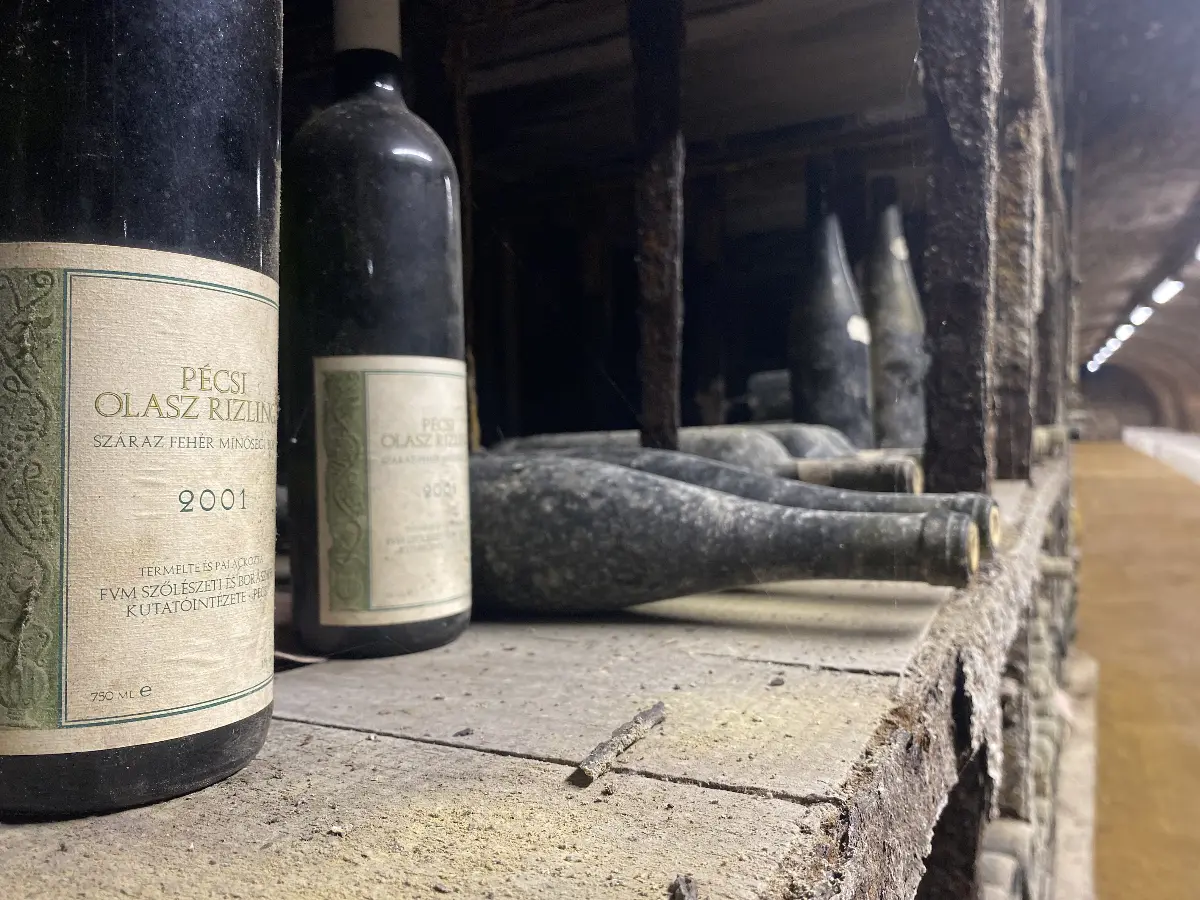
And the Pécs institute has already produced a fragrant white wine from its own breeding of resistant grapes, which could even be a worthy rival to Irsai Olivér. A secret highlight is that this variety is called Jázmin and has already been planted over several hectares in the Badacsony wine region.
The winemakers at the PTE are constantly working on something that of course the consumers will "have to" swallow. One thing is for sure: we are very happy to do so, because Hungarian wine culture deserves to bloom in all its glory as the world opens.
